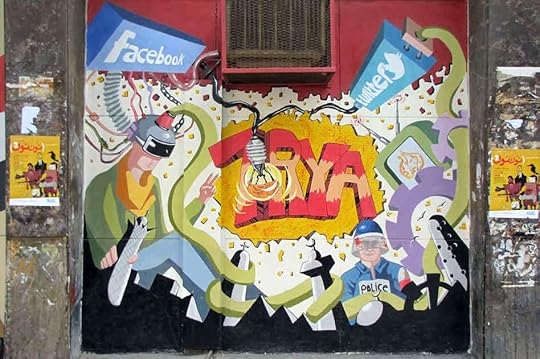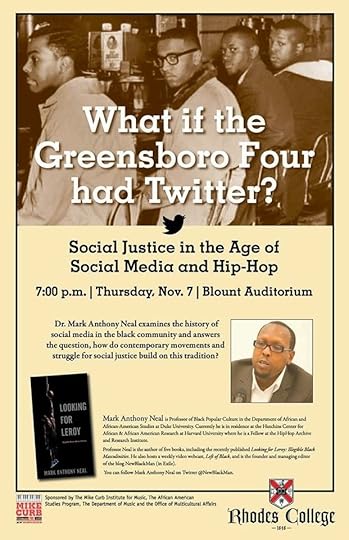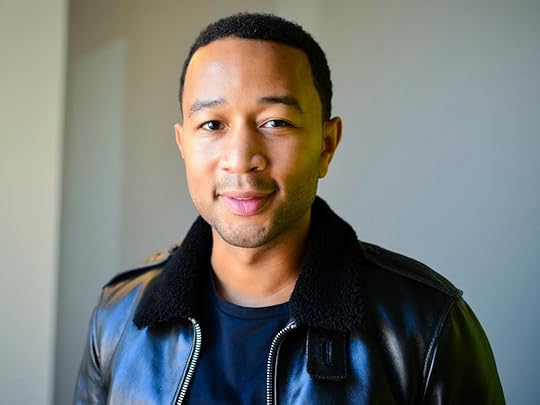Mark Anthony Neal's Blog, page 857
November 9, 2013
Tell Me More: Art Revolution Blooms After Arab Spring
Published on November 09, 2013 05:59
November 6, 2013
Left of Black S4:E8: Soul Power TV—Soul Train and the Birth of ‘Black’ Talk TV
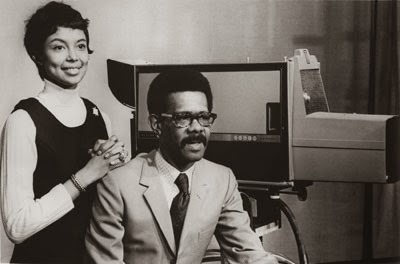 Ellis Haizlip and assistant producer Alice Hille (image courtesy Christopher Lukas)Left of Black S4:E8: Soul Power TV—Soul Train and the Birth of ‘Black’ Talk TV
Ellis Haizlip and assistant producer Alice Hille (image courtesy Christopher Lukas)Left of Black S4:E8: Soul Power TV—Soul Train and the Birth of ‘Black’ Talk TVLeft of Black host and Duke University Professor Mark Anthony Neal is joined, via Skype, by Ericka Blount Danois, an award-winning journalist and author of Love, Peace, and Soul: Behind the Scenes of America’s Favorite Dance Show Soul Train: Classic Moments.
Neal is later joined via Skype by Chicago-based media scholar Devorah Heitner, author of Black Power TV (Duke University Press), which examines first generation public affairs programs such as Inside Bed-Stuy, Say Brother, Soul! and Black Journal.
Left of Black is a weekly Webcast hosted by Mark Anthony Neal and produced in collaboration with the John Hope Franklin Center at Duke University.
***
Episodes of Left of Black are also available for free download in @ iTunes U
***
Follow Left of Black on Twitter: @LeftofBlackFollow Mark Anthony Neal on Twitter: @NewBlackManFollow Ericka Blount Danois on Twitter: @ErickaBlount Follow Devorah Heitner on Twitter: @DevorahHeitner
Published on November 06, 2013 08:04
#BlackGirlsRock: Alice Smith--"Fool for You"
Published on November 06, 2013 07:17
November 5, 2013
Rapsody. 9th Wonder. Duke Basketball.
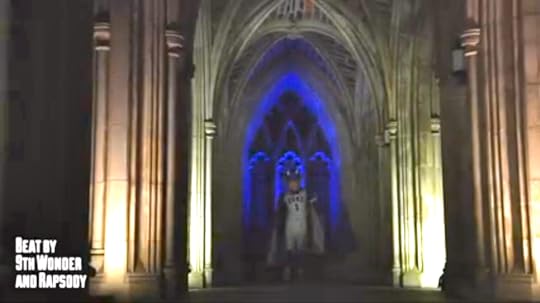
DukeBluePlanet
Video introducing the 2013-14 Duke Men's Basketball team. Thanks to 9th Wonder and Rapsody for the beat.
Published on November 05, 2013 16:06
Hurricane Obvious or Not Incognito: The Destructive Pathology of White Male Pathologies
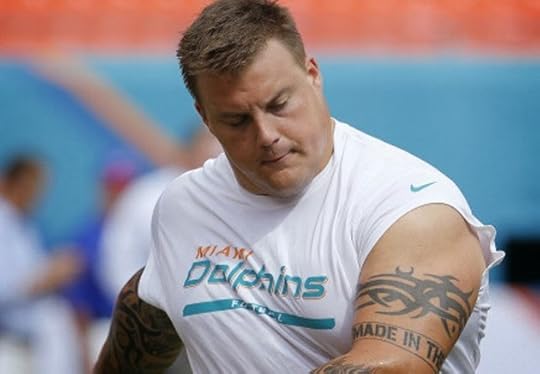 Hurricane Obvious or Not Incognito:
The Destructive Pathology of White Male Pathologies
by David J. Leonard | NewBlackMan (in Exile)
Hurricane Obvious or Not Incognito:
The Destructive Pathology of White Male Pathologies
by David J. Leonard | NewBlackMan (in Exile)Just this week, Jason Whitlock returned to his familiar playbook: recycling culture of poverty narratives and those demonizing single-parented black homes. Responding to the sight of the Cowboys’ Dez Bryant passionately demanding that his team do better, Whitlock lamented “Dez Bryant's inability to control his emotions” which to him is “a family dysfunction issue.” Not satisfied, Whitlock continued this line of discussion:
But the reality is, Dez Bryant is swirling in a cultural tsunami every bit as destructive and powerful as climate change.
Let's call it "Hurricane Illegitimacy." Its victims are primarily black and brown, but Hurricane Illegitimacy is a not black or brown problem. It's an American problem that is denied and exacerbated on the left and mischaracterized and exploited on the right.
Like climate change, Hurricane Illegitimacy is powered by man-made factors:
1. A lack of proper restraints on welfare entitlement programs for single mothers and fathers.2. America's bogus war on poor people who use and sell drugs.3. Turning incarceration into a for-profit business model.4. A refusal to recognize that investment in the education of our poorest and weakest citizens could strengthen our entire society.5. Our collective lack of courage and resolve to combat popular-culture forces that celebrate, normalize and profit from baby-mama and criminal culture.
Because of this melting-pot-country's history, we've been conditioned to identify the race of a person misbehaving and examine the racial implications. We would be far better served looking at the family history.
Although there is much that can be said here, from its historic myopia (really, the “melting pot”? the 1980s wants your narrative back) to its misguided assault on social welfare and single-parented homes, I thought of a better way to respond to his new age Moynihan Sports Report.
I took the liberty of writing my own mini column in the tradition of Jason Whitlock. Just as Whitlock is obsessed with rap music, "single mothers" and "hurricane illegitimacy,” I am inspired to write about "two-parented suburban homes," white masculine entitlement, and a culture of violence/hazing with respect to Richie Incognito, whose rap sheet extends longer than his NFL career. Accusations of bullying, racism, hazing, and creating a hostile work environment are just the tip of the iceberg - hurricane obvious has been in development for many years.
The title of the piece captures a culture that has nurtured, sanctioned, and created Richie Incognito: Hurricane Obvious or Not Incognito: the destructive pathology of white male pathologies.
Like climate change, wealth inequality, and war, Richie Incognito is the result man-made factors. Hurricane Illegitimacy or Hurricane Obvious has produced America’s newest bully. We must talk about the root issues and the hurricane that produced him:
1. A lack of proper restraint on entitled white youth, whose sense of aggrievement and victimhood contributes to a societal tolerance. Where is the accountability for white youth who violate or laws and moral standards?
2. America's culture of tolerance for white males who violate rules and laws without consequences. Taking away milk and cookies or access to car and video games for 15 minutes is clearly not sufficient.
3. Turning football and sporting cultures into big business, which has fostered a jock culture defined by widespread pathologies, destructive values, and dangerous behavior. This is especially threatening when paired with the entitlement of children from suburban two-parented homes. How else can we explain multiple chances from college squads and NFL teams with respect to Richie Incognito?
4. Societal silence on the failures of two-parented homes to properly nurture kids who are loving, caring, and thoughtful boys. What lessons did his father teach him?
5. A refusal to recognize that destructive consequence of a masculinity defined by violence, physicality, abuse, and domination. Suburbia, we have a problem.
6. Our collective lack of courage and resolve to combat popular-culture forces that celebrate, normalize and profit from white masculinity. Rambo, and The Terminator – violent; Rush Limbaugh and Sean Hannity: where it’s OK to be a bully.
7. The failures of white suburbia to produce males who are accountable. Richie Incognito is yet another example of the failures of suburban American to produce adaptable kids.
8. A popular culture the sanctions and celebrates bullying. Who can forget the bullying endured by Lucas; what about athlete bullying in Can’t Buy me Love and The Breakfast Club. One can only wonder of Mr. Incognito watched these films as a young child finding inspiration from his jock brethren.
9. I can only imagine what music is on Mr. Incognito’s iPod but one has to wonder if he listened to Kenny Rogers’ “Coward of the Country” or Goodie Mob’s “Special Education” and identified with the bullies instead of their anti-bullying message.
10. And finally, a media that turns a blind eye to (white) athletes who are suspended multiple times, who have multiple arrests, who have shown themselves to lack self-control. The shock and dismay in the face hurricane obvious is part of the problem
I could go on, but why. Sadly, part of what I write here is satire where as Jason Whitlock and others are all too serious in their troubling attempts at commentary, sociology, history and psychology. The fact that Whitlock (and there are others who use their platforms to play sociologist while on the job) took (and really miss-took) one incident involving Dez Bryant as a starting point for a larger narrative is not surprising. Black bodies are consistently seen as criminal and pathological within the dominant imagination; the individual is always representative and subject to scrutiny, surveillance, and criminalization. On the other hand, whiteness is afforded a sense of individuality never representative or indicative of larger issues; he’s Richie and therefore not a symbol or a mirror of the problems of whiteness, masculinity, the NFL, two-parented homes, suburbia, or American culture. The double standards are crystal clear and that yet another element of Hurricane Obvious.
***
David J. Leonard is Associate Professor in the Department of Critical Culture, Gender and Race Studies at Washington State University, Pullman. Leonard’s latest books include After Artest: Race and the Assault on Blackness (SUNY Press) and African Americans on Television: Race-ing for Ratings (Praeger Press) co-edited with Lisa Guerrero. He is currently working on a book Presumed Innocence: White Mass Shooters in the Era of Trayvon about gun violence in America.
Published on November 05, 2013 14:54
November 4, 2013
'What if the Greensboro Four Had Twitter?': Mark Anthony Neal to Speak at Rhodes College in Memphis on 11.7.13
Published on November 04, 2013 04:58
MHP Show: Beverley Bond, Daphne Brooks and Joan Morgan Discuss Black Girls & Music
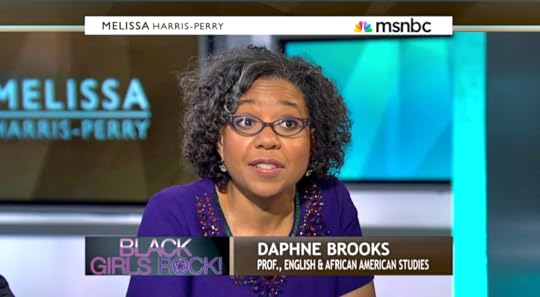 MHP Show
MHP ShowMelissa Harris-Perry and panel talks about the “Black Girls Rock” Awards show and how African-American women are represented in music--with Beverly Bond, Daphne Brooks and Joan Morgan.
Published on November 04, 2013 04:34
November 3, 2013
School Reform, School Closings and Historic Memory—A Tragedy in the Making
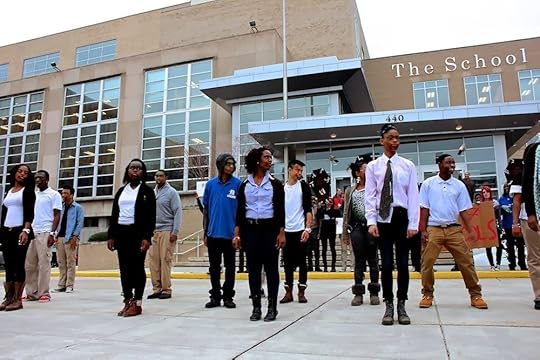 Philadelphia Students performing "Zombie Apocalypse" to protest school closings
School Reform, School Closings and Historic Memory—A Tragedy in the Making
by Mark Naison | special to NewBlackMan (in Exile)
Philadelphia Students performing "Zombie Apocalypse" to protest school closings
School Reform, School Closings and Historic Memory—A Tragedy in the Making
by Mark Naison | special to NewBlackMan (in Exile)I am an historian by training and a history teacher by profession, and one of the dimensions of the dominant education policies in this country which disturb me the most is how they erase history and historic memory.
I am not just talking about marginalizing the teaching of history, though that is definitely one direct consequence of current reform policies. Even more serious are institutional decisions which end up destroying historical memory and the possibility of using the wisdom and cultural capital of past generations.
First among these are school closings, which have had their primary effect in inner city neighborhoods, from Buffalo to Baltimore to Chicago to Los Angeles. These so called "failing schools" have all had rich histories, some of them close to a hundred years in the making, which involve themes ranging from migration and immigration, to musical creativity, to changing economies and neighborhoods, which live in the experience of alumni as well as documents the schools themselves have preserved.
Closing the schools not only shatters the possibility of drawing upon that rich cultural capital, it sends a message to students that nothing in the past is that important, including their own families and cultural traditions, treating them as clay to be molded by people who see the past—at least for people like them—only as failure.
Second, and connected, is the destruction of teaching as a lifetime profession, reflected not only in the firings and layoffs associated with schools closings, but with thinly disguised efforts to drive veteran teachers out of the profession through a combination of burdensome and humiliating assessments and observations, and open preference for teachers who come from alternative certification programs like Teach for America where the vast majority of participants stay for only a few years.
More and more, the schools in poor and working class neighborhoods are filled with young teachers who don't live in those communities, don't know anything about their histories, and stay only a few years.
All this has happened very fast, but we need to ponder its consequences. Basically, what we have done is erased the power of historic memory among a whole generation of young people growing up in poor communities, implicitly suggesting that they are in possession of no traditions worthy or preserving and that the people most important in their lives, family members, neighbors, religious leaders, and the like, are not to be looked to for wisdom, leadership and inspiration.
And if school reformers have their way, this erasure of memory will spread to public schools everywhere, treating children not as members of families and communities whose traditions can enrich teaching and learning, but as clay to be molded as the behest of powerful elites.
This has been going on under the radar screen for many years. It is time it's undemocratic implications be exposed and discussed.
***
Mark Naison is a Professor of African-American Studies and History at Fordham University and Director of Fordham’s Urban Studies Program. He is the author of two books, Communists in Harlem During the Depression and White Boy: A Memoir. Naison is also co-director of the Bronx African American History Project (BAAHP). Research from the BAAHP will be published in a forthcoming collection of oral histories Before the Fires: An Oral History of African American Life From the 1930’s to the 1960’s.
Published on November 03, 2013 06:21
November 2, 2013
MHP Show: Craig Steven Wilder on Historical Links of Slavery and America's Elite Colleges
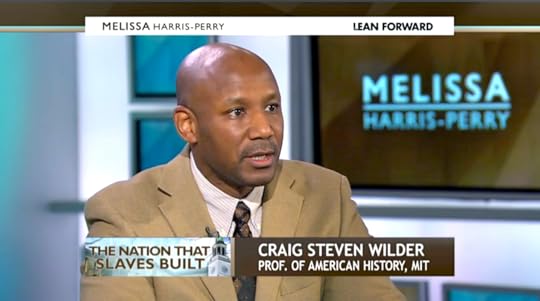 MHP Show
MHP ShowCraig Steven Wilder talks about the deep history of some American colleges that were crafted by enslaved people and operated by presidents who owned slaves.
Published on November 02, 2013 15:25
Tell Me More: John Legend On Marriage, Music And 'Genius' Kanye West
Published on November 02, 2013 14:47
Mark Anthony Neal's Blog
- Mark Anthony Neal's profile
- 30 followers
Mark Anthony Neal isn't a Goodreads Author
(yet),
but they
do have a blog,
so here are some recent posts imported from
their feed.


